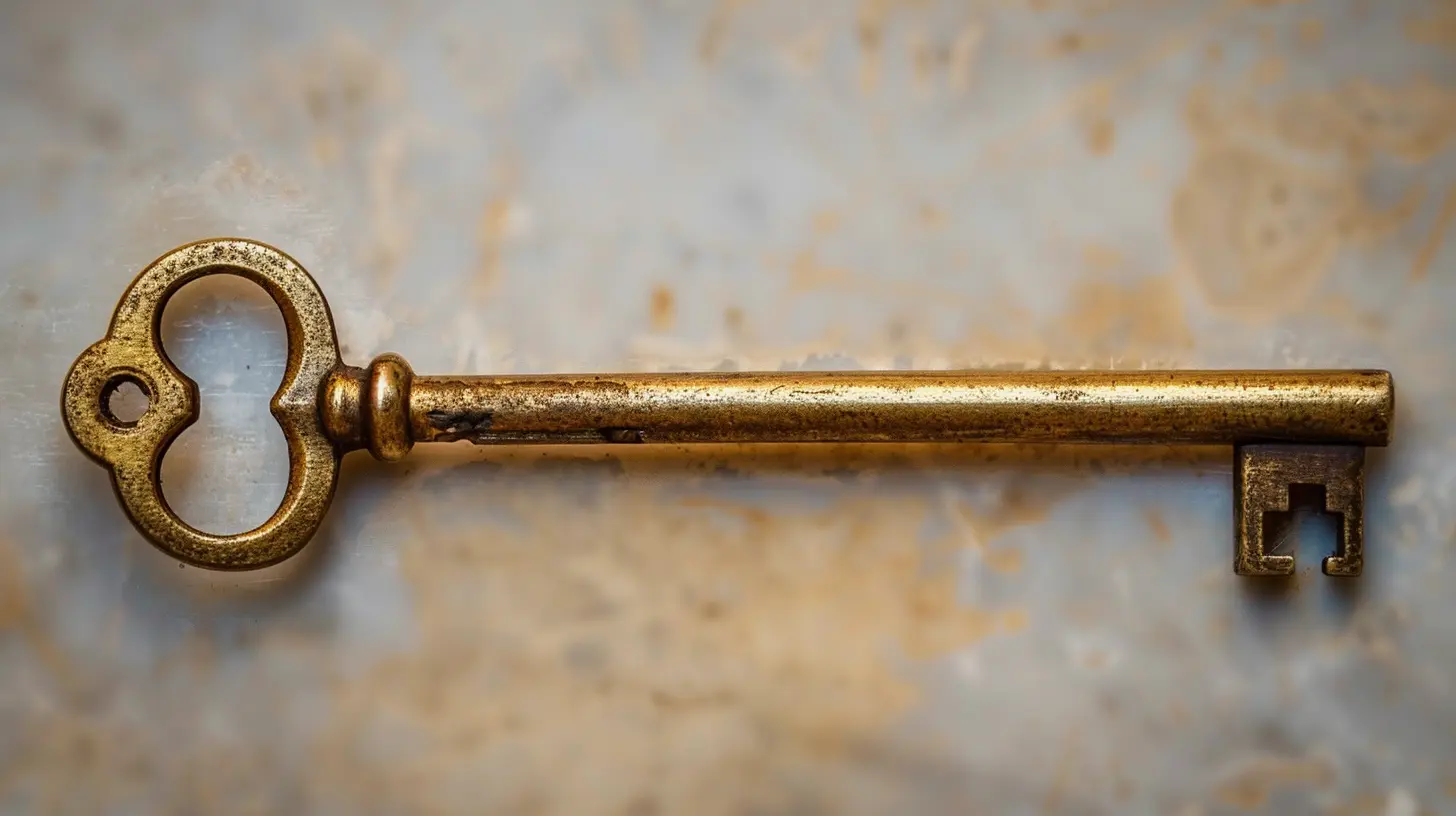Is an Inherited IRA Taxable? Key Considerations
18 October 2025
Let’s face it—dealing with the loss of a loved one is hard enough. But when you inherit something like an IRA (Individual Retirement Account), it can feel like you’re suddenly thrown into a financial maze with more questions than answers. One of the biggest concerns? Taxes.
So, is an inherited IRA taxable?
Short answer: Yes, but it depends.
Don’t worry—we’re going to walk through this together. In this guide, we’ll break down everything you need to know about inherited IRAs, how they’re taxed, and what your options are, all in plain English.
💼 What Is an Inherited IRA?
Before we dive into the tax talk, let’s make sure we’re on the same page.An inherited IRA is exactly what it sounds like: an IRA that you inherit from someone who has passed away. It could be from a parent, a spouse, a sibling, even a friend. When you become the beneficiary of an IRA, you don’t just “get” the money—you inherit the rules, restrictions, and yes, the taxes.
There are two main types of IRAs you might inherit:
- Traditional IRA: Contributions may have been tax-deductible, meaning withdrawals are usually taxed.
- Roth IRA: Contributions were made with after-tax dollars, so qualified withdrawals are typically tax-free.
But how you’re taxed depends not only on the type of IRA, but also who you are in relation to the person who passed away.
🤔 Is an Inherited IRA Taxable?
The million-dollar question. Let's answer it step by step.Traditional IRA: Yes, It's Taxable
If the original owner put pre-tax money into the account—as is the case with a traditional IRA—then Uncle Sam is still waiting to collect. When you withdraw funds from the inherited IRA, you’ll generally owe income tax on those distributions, just like the original owner would have.The IRS doesn’t take a cut of the entire account at once—only when you take withdrawals. But here’s the twist: you might be required to take distributions every year, depending on your relationship to the deceased.
Roth IRA: It Might Not Be Taxable
Roth IRAs are treated a bit more kindly. If the Roth IRA has been open for at least five years, then the earnings you withdraw from the inherited account are tax-free. The money that was originally contributed is already tax-paid, so that part is never taxed again.But—and it’s a big but—if the account hasn’t been open for five years, you may owe taxes on the earnings portion. Timing matters more than you think.
🧍♂️ Relationship Matters: Are You a Spouse or Non-Spouse Beneficiary?
The IRS has different rules depending on whether you’re a spouse or a non-spouse beneficiary. Sounds complicated? It is. But stick with me—we’ll sort it out.If You Inherit an IRA as a Spouse
You’ve got the most flexibility here.Option 1: Treat as Your Own IRA
You can roll the inherited IRA into your own IRA. This means you don’t have to take required minimum distributions (RMDs) until you turn age 73 (as of 2024), assuming it's a traditional IRA.Pros:
- Delays taxes if it’s a traditional IRA
- Continues to grow tax-deferred or tax-free (Roth)
Cons:
- Early withdrawal penalties may apply if you’re under 59½
Option 2: Inherited IRA as a Beneficiary
Alternatively, you can leave it as an inherited IRA and begin taking distributions based on your life expectancy. This can be helpful if you’re younger than 59½ and want to avoid the 10% early withdrawal penalty.If You're a Non-Spouse Beneficiary
Things get tighter for you, thanks to the SECURE Act of 2019.Most non-spouse beneficiaries must empty the inherited IRA within 10 years of the original owner’s death. This is known as the “10-Year Rule.”
There are exceptions for:
- Minor children (until they reach the age of majority)
- Disabled or chronically ill individuals
- Beneficiaries not more than 10 years younger than the deceased
But for most people? You’ve got 10 years to withdraw everything—and yes, you might owe taxes on those withdrawals if it’s a traditional IRA.
🧮 Required Minimum Distributions (RMDs)
If you inherit an IRA, odds are you’ll have to deal with RMDs sooner or later. Here’s how they work.For Traditional IRAs
RMDs are almost always required, unless you're a spouse and choose to roll it into your own IRA. These required withdrawals are taxable income.The IRS wants their share, after all.
For Roth IRAs
RMDs don’t apply to the original owner, but they do apply to beneficiaries. Even though Roth IRAs are usually tax-free to withdraw from, you still have to take the money out. And if the account is under 5 years old, some of the earnings could be taxable.Remember that 10-Year Rule? That applies to both traditional and Roth IRAs, for most non-spouse beneficiaries.
🧠 Strategies to Minimize Taxes on an Inherited IRA
Now that we’ve talked about how the IRS wants their cut, let’s talk about how you might reduce the bite.1. Spread Withdrawals Over Time (If Allowed)
Instead of taking a lump sum and potentially moving into a higher tax bracket, consider spreading the withdrawals over several years. This smooths out your tax liability.2. Consider Your Tax Bracket
Are you in a low tax bracket this year? It might be a good year to take a bigger withdrawal. Planning withdrawals around your income could save you thousands.3. Use Charitable Donations (QCDs)
If you're over 70½, you can use a Qualified Charitable Distribution (QCD) to donate up to $100,000 per year directly from the inherited IRA to a qualified charity. This counts toward your RMD and isn’t taxed as income.Win-win, right?
4. Involve a Tax Advisor
Inherited IRAs are like financial puzzles with invisible pieces. Sometimes it’s best to bring in a pro. A certified financial planner or tax advisor can help you map out the smartest tax strategy for your situation.🚫 Common Mistakes to Avoid
Let’s go over a few traps people fall into when inheriting an IRA—you’ll want to steer clear of these.💣 Taking a Lump Sum
Sure, it's tempting to cash out and buy that dream vacation or new car. But taking a lump sum can instantly boost your income—and your tax bill.💥 Missing RMD Deadlines
If you miss one? That’s a 50% penalty on the amount you should’ve withdrawn. Yep, 50 percent. It’s one of the IRS’s harshest penalties.🧭 Not Checking the Beneficiary Form
Your inheritance is tied to whoever is named on the IRA's beneficiary form. Wills don’t override it. Always double-check to make sure you're listed correctly.📋 Quick Recap: Is an Inherited IRA Taxable?
Here’s the bottom line:| Type of IRA | Taxable? | RMDs? | Special Rules |
|-------------|----------|-------|----------------|
| Traditional | Yes | Yes | 10-Year Rule for most |
| Roth | Maybe | Yes | Tax-free if over 5 years old |
| Spouse Beneficiary | Maybe | Depends | You can roll it into your own IRA |
| Non-Spouse Beneficiary | Yes/Maybe | Yes | Must withdraw within 10 years |
❤️ Final Thoughts: Take It One Step at a Time
Losing someone you love is overwhelming—and navigating inherited IRAs on top of that? It’s a lot. But you don’t have to figure it all out overnight.Start by understanding what you’ve inherited, check your relationship to the original owner, and go from there. Remember, it's okay to ask for help. This isn’t something most people deal with every day, and even the most financially savvy folks can find it confusing.
And if you’re reading this while still grieving, just know we're here for you. Take a deep breath. You’re doing better than you think.
✨ FAQs About Inherited IRAs
Can I refuse an inherited IRA?
Yes, you can disclaim the inheritance. That means you’re saying, “No thanks,” and the IRA will pass to an alternate beneficiary.What happens if I don’t take the required distributions?
You could face that nasty 50% penalty. If your RMD was $10,000 and you didn’t take it, the IRS could slap you with a $5,000 fee.Can I convert an inherited IRA to a Roth?
Nope. Once you inherit an IRA, you can’t convert it to a Roth—unless you're the spouse and you roll it into your own IRA first.all images in this post were generated using AI tools
Category:
Ira AccountsAuthor:

Uther Graham
Discussion
rate this article
1 comments
Rosalind Good
Understanding tax implications on inherited IRAs is crucial for financial planning.
October 26, 2025 at 2:56 AM

Uther Graham
Absolutely! Understanding the tax implications of inherited IRAs is essential for effective financial planning and ensuring proper management of your inheritance.


